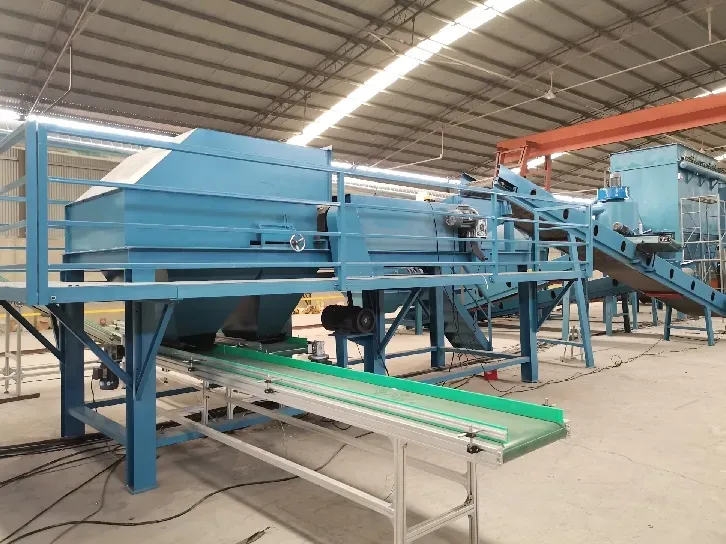Innovative Scrap Processing Enhancing Metal Recycling for a Sustainable Future

In the rapidly evolving world of metal recycling, scrap processing plants are at the forefront of sustainability and circular economy initiatives. These facilities have become pivotal in ensuring that metal waste is not only managed effectively but also recycled and reused to minimize environmental impact. Through advanced technologies and innovative best practices, scrap processing plants are revolutionizing the way we perceive waste and contributing significantly to industrial efficiency and ecological balance.
Scrap processing plants employ a suite of advanced equipment and processes designed to efficiently handle various types of metal waste. Their operations are integral to the metal recycling supply chain, serving as the critical juncture between scrap metal collection and its transformation into valuable raw materials. This transformation is achieved through a series of processes that ensure maximum recovery of materials while adhering to stringent environmental and safety standards.

A key component of modern scrap processing plants is the use of cutting-edge separation technologies. These plants utilize sophisticated machinery such as shredders, magnetic separators, and eddy current separators to effectively sort ferrous and non-ferrous metals. By employing precise separation techniques, scrap processing plants ensure that metals are sorted with high accuracy, thus maximizing the value of the recycled materials. These technologies are continuously updated to improve efficiency and adapt to the changing composition of scrap materials brought about by new manufacturing technologies and material designs.
The expertise within scrap processing plants extends beyond just mechanical processing. Skilled operators and technicians play a crucial role in monitoring and optimizing the recycling process. Their in-depth knowledge of materials, combined with a keen understanding of technological systems, allows for the continuous improvement in processing yields and safety protocols. These professionals are key to maintaining the balance between operational efficiency and environmental stewardship.
scrap processing plant
Environmental sustainability is at the core of scrap processing plant operations. These facilities adhere to comprehensive environmental management systems that monitor emissions, energy use, and waste generation. Regular audits and assessments help ensure compliance with environmental regulations, while continuous improvement initiatives drive advancements in eco-friendly practices. By reducing the reliance on natural ore extraction, scrap processing plants contribute significantly to conserving natural resources and reducing carbon emissions associated with metal production.
Scrap processing plants also play an authoritative role in the global movement towards a more sustainable circular economy. These facilities provide critical insights and data that help shape industry standards and policies. By working closely with regulatory bodies, industry partners, and sustainability organizations, scrap processing plants help develop guidelines and practices that promote material recovery and waste reduction on a global scale.
The trustworthiness of a scrap processing plant is built upon its commitment to quality, transparency, and community engagement. Many facilities actively engage with local communities to promote recycling awareness and educate stakeholders on the benefits of metal recycling. Open communication and transparency in operations foster trust among clients, regulatory bodies, and the public. By demonstrating a genuine commitment to environmental and social responsibility, scrap processing plants solidify their reputation as reliable partners in sustainable development.
In product-related contexts, scrap processing plants deliver raw materials that are critical to the manufacturing of new products. Recycled metals are utilized in a vast array of industries, from automotive and construction to electronics and consumer goods. The high-quality standards maintained by scrap processing plants ensure that recycled materials meet the stringent requirements of manufacturers, thus supporting product innovation and reducing production costs. By supplying sustainable raw materials, these plants empower industries to enhance their products' sustainability credentials, meeting the increasing consumer demand for eco-friendly solutions.
In conclusion, scrap processing plants are dynamic entities at the heart of sustainable metal recycling. By harnessing advanced technologies, fostering expertise, and promoting environmental stewardship, these facilities not only enhance the efficiency and viability of metal recycling but also contribute meaningfully to global sustainability goals. Their authority and trustworthiness within the industry stem from a steadfast commitment to quality, transparency, and community involvement. As the world continues to grapple with environmental challenges, the role of scrap processing plants will only become more critical, driving innovations in recycling and manufacturing while paving the way for a circular economy that values every piece of scrap as a potential building block for the future.



